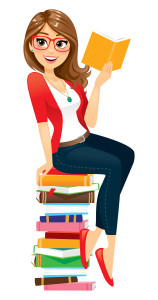Books Are Excellent Speech Therapy Tools!
Yes, Books are excellent speech therapy tools and effective way to improve articulation disorder. As we continue our in-depth look at tools for speech therapy, we take a look at books. Reading to your child is one of the most important things you can do as a parent or caregiver whether or not you child has a speech disorder. As we have mentioned before, reading to your child helps make connections with what he or she is hearing and functions as a building block to language development. Reading comprehension is an essential tool for a child’s future academic achievement and social well-being. Not only does reading books serve as an effective form of speech therapy, it’s an excellent way to engage and entertain your child. The books listed below are not intended to replace speech therapy with an SLP. Rather, these are books that you can read at home with your child, to encourage sound production and set them up for correct articulation patterns.
Why Are Books Excellent Tools For Speech Therapy?
- Increases fluency – reading gives kids the opportunity to practice fluency and gain feedback on their pronunciations and emphases of words
- Improves comprehension – the more adept children become at reading the more confident they become in accessing information
- Helps develop critical reasoning – reading aloud, especially in front of people, means that the reader is more invested in the process and more likely to think about what he or she is saying while reading (the words matter more)
- Give opportunities to practice expressive language skills
An interesting statistic in The Partnership for Accessible Reading Assessment (PARA) states that there is evidence of a relationship between language impairments and reading disabilities, showing that a majority of native English speaking students who do not develop proficient reading skills in English had an early history of spoken-language deficits (Catts, Fey, Tomblin, & Zhang, 2002).
As we have discussed this week in our in-depth Speech Therapy Tools series, when it comes to articulation the most difficult sounds to pronounce are R,S,L,CH and SH. Below are a few recommendations for books that work on each sound. Of course, these are just a few, but these cover the basic sounds and are engaging and entertaining! Enjoy.
R Sound:
The Very Hungry Caterpillar by Eric Carle
Harriet’s Horrible Hair Day by Dawn Lesley Stewart
S Sound:
The Itsy Bitsy Spider by Iza Trapani
Sledding by Elizabeth Winthrop
White Snow, Bright Snow by Alvin Tresselt
L Sound:
5 Little Lady Bugs by Karyn Henley
Big, Small, Little Red Ball by Emma Dodd
Look Book by Tana Hoban
SH Sound:
Sheep on a Ship by Nancy Shaw
I Love My Shadow by Hans Wilhelm
Splish, Splash! by Sarah Weeks
CH Sound:
Ah-Choo! by Margery Cuyler
Chicka Chicka Boom Boom by Bill Martin, Jr. and John Archambault
Itchy, Itchy Chicken Pox by Grace MacCarone
What are some of your favorite books? We’d love to hear your suggestions!



